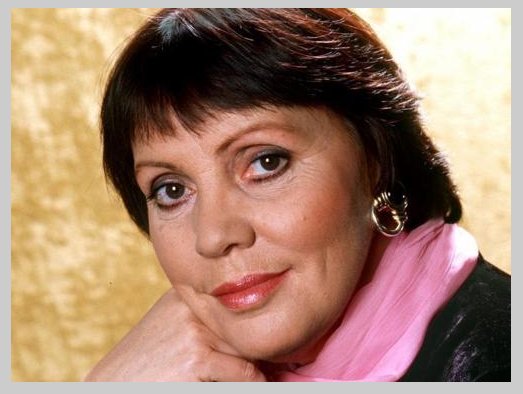

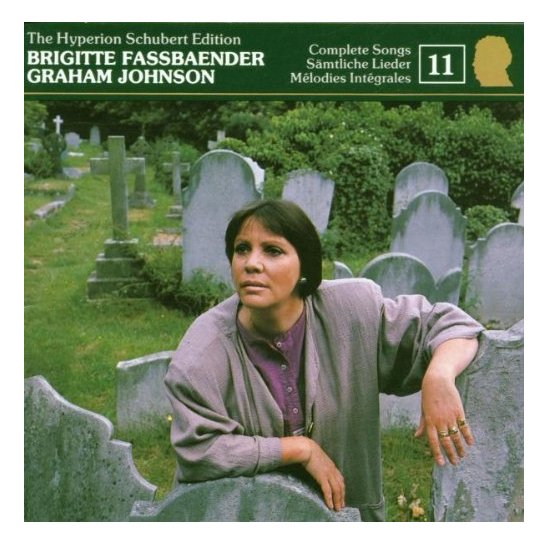 BF: There is nothing. This is nothing you
can do. Like with every other normal person, you must jump over your
shadow every evening, actually. I want to be as much as possible pleased
with my work, and so should the public. I want it, but I’m never content.
But I’m glad when the public is content sometimes.
BF: There is nothing. This is nothing you
can do. Like with every other normal person, you must jump over your
shadow every evening, actually. I want to be as much as possible pleased
with my work, and so should the public. I want it, but I’m never content.
But I’m glad when the public is content sometimes. 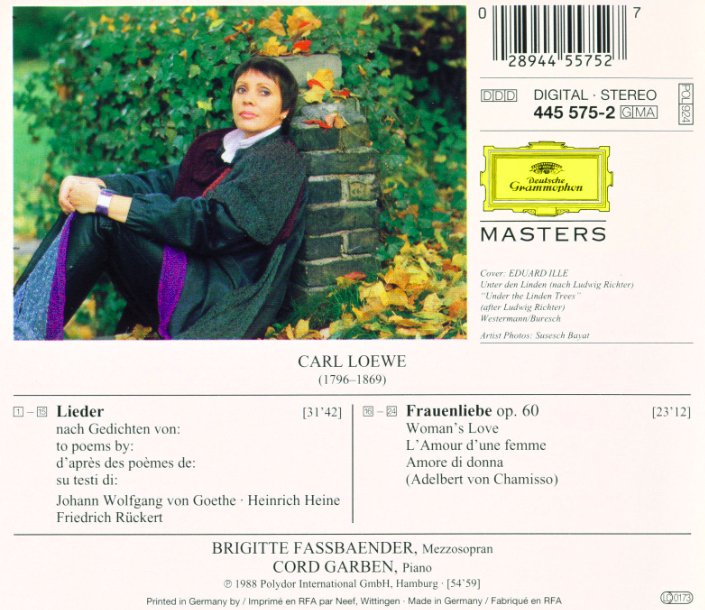 BF: Lieder
and opera also, but in opera it is probably easier because you have the colleagues
and you have the orchestra. Mostly it’s stuff you have sung often on
stage, then you bring in all these emotions. But with lieder it’s a difficult thing for records,
but I love it and I’m doing rather a lot in the next years, which I’m very
happy about. I just finished Winterreise,
and the next project is Schwanengesang
and all these great Schubert cycles. I’m doing lots of stuff, and I’m
very happy about that.
BF: Lieder
and opera also, but in opera it is probably easier because you have the colleagues
and you have the orchestra. Mostly it’s stuff you have sung often on
stage, then you bring in all these emotions. But with lieder it’s a difficult thing for records,
but I love it and I’m doing rather a lot in the next years, which I’m very
happy about. I just finished Winterreise,
and the next project is Schwanengesang
and all these great Schubert cycles. I’m doing lots of stuff, and I’m
very happy about that.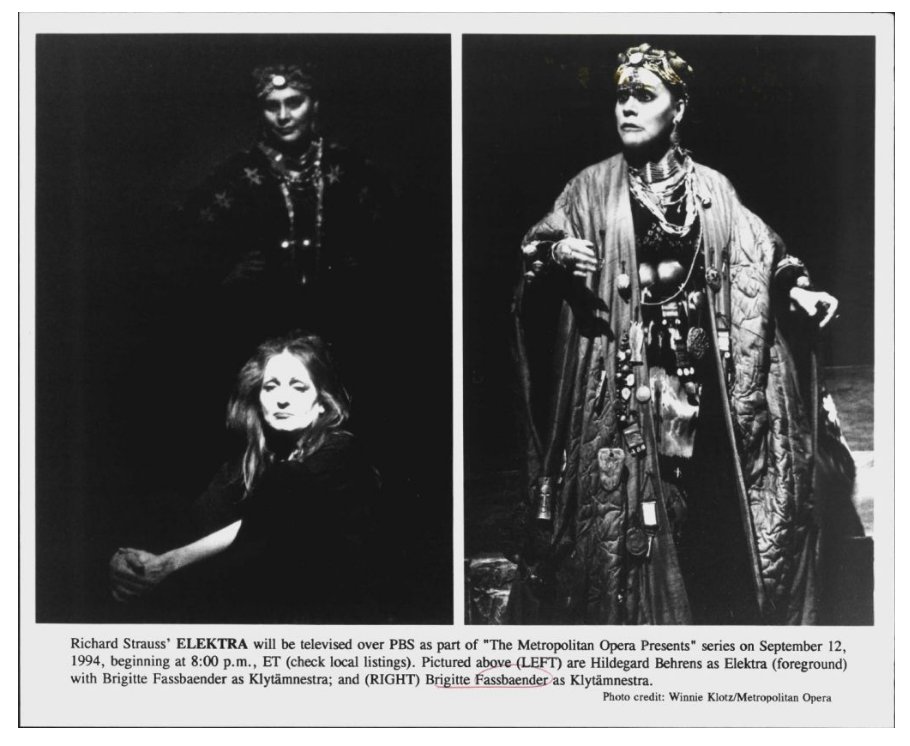 BD: What is it that he had for the female voice?
BD: What is it that he had for the female voice?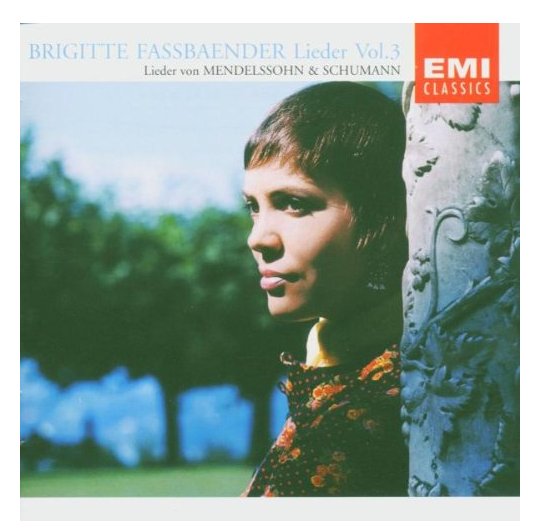 BD: Does that make the Italian dramas weaker?
BD: Does that make the Italian dramas weaker?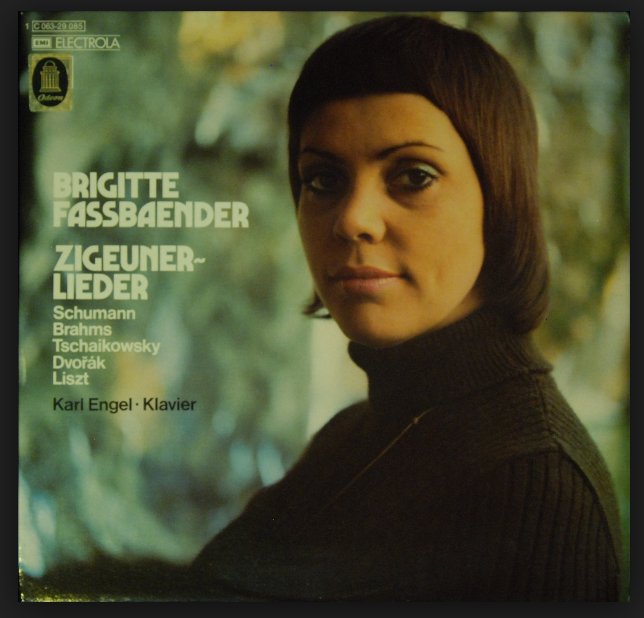 BF: Oh, I loved his voice. He was my teacher,
and I heard him rather often when I was a student and a schoolgirl.
I traveled where he sang, and in his last years I saw all his famous parts
including Rigoletto, Figaro in Barbiere
and Scarpia. He was always the top, absolutely, but I didn’t know that.
For me it was great, and when he stopped singing he was a wonderful teacher.
I loved his voice enormously. It had a special brilliant sound.
He was a real Italian baritone.
BF: Oh, I loved his voice. He was my teacher,
and I heard him rather often when I was a student and a schoolgirl.
I traveled where he sang, and in his last years I saw all his famous parts
including Rigoletto, Figaro in Barbiere
and Scarpia. He was always the top, absolutely, but I didn’t know that.
For me it was great, and when he stopped singing he was a wonderful teacher.
I loved his voice enormously. It had a special brilliant sound.
He was a real Italian baritone. The German mezzo-soprano, Brigitte
Fassbaender, is the daughter of screen actress Sabine Peters and the celebrated
German baritone, Willi Domgraf-Fassbaender. 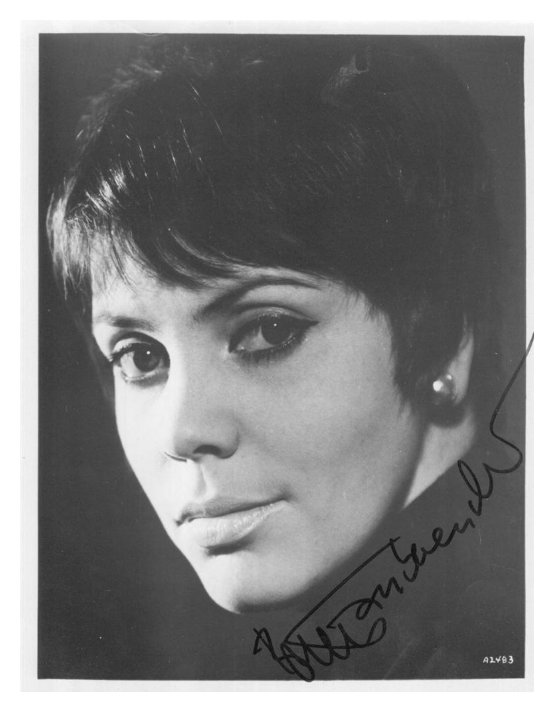 Brigitte's first love was not music, but theatre. She longed to become an
actress like her mother, and it wasn’t until the family settled in Nuremberg
that she began to secretly experiment with her voice. When she felt confident
enough, she made a tape of arias and lieder and sent them to her father, who
was then the head of the opera department at the Nuremberg Conservatory.
Domgraf-Fassbaender promptly took his daughter on as a pupil, and she studied
at the conservatory as a mezzo-soprano from 1958 to 1961.
Brigitte's first love was not music, but theatre. She longed to become an
actress like her mother, and it wasn’t until the family settled in Nuremberg
that she began to secretly experiment with her voice. When she felt confident
enough, she made a tape of arias and lieder and sent them to her father, who
was then the head of the opera department at the Nuremberg Conservatory.
Domgraf-Fassbaender promptly took his daughter on as a pupil, and she studied
at the conservatory as a mezzo-soprano from 1958 to 1961.She made her debut in Munich as the Page in Wagner's Lohengrin, which led to other small roles in various operas. Later in 1961, she made what she considers to be her real debut, as Nicklausse in Offenbach’s Les Contes d'Hoffmann. During the next twelve years, Fassbaender perfected her artistry, and in 1970 she was given the honorary title of Kammerägerin. In Munich, she appeared as Hänsel in Engelbert Humperdinck’s Hänsel and Gretel, Cherubino in Mozart’s Le Nozze di Figaro, Fatima in Weber’s Oberon, and Narciso in George Frideric Handel’s Agrippina, as well as Octavian in Strauss’ Der Rosenkavalier, which she first sang in 1967. Octavian launched her international career when she appeared at the Royal Opera House (Covent Garden) in London in 1971 and at the Metropolitan Opera in 1974. She sang Octavian for more than 20 years, and then retired the role from her repertoire in 1988. As her career took off, she began to add many new roles to her repertoire. She has appeared as Clairon in Capriccio, the Composer in Ariadne auf Naxos, Fricka in Die Walküre, Carmen in Carmen, Orlovsky in Die Fledermaus, Amneris in Aïda, Maddalena in Rigoletto, and Eboli in Don Carlos. More recently, she added the role of Klytemnestra in Strauss’ Elektra. Brigitte Fassbaender has also been successful as a lieder singer. In 1987, she won a Gramophone Award for her disc of songs by Franz Liszt and Richard Strauss. She has also recorded Schubert’s song cycle Winterreise, as well as Johannes Brahms’ Die Schöne Magelone and Carl Loewe’s little-known Fraünliebe cycle. Besides her vocal artistry, she has also done some producing (stage-directing), and was Intendantin (Managing Director) of the Tiroler Landestheater at Innsbruck. She is a teacher of solo vocal music at the Musikhochschule in Munich, and a fellow of Manchester’s Royal College of Music. In January 2011, the French Government appointed her an honorary Chevalier of the Légion d'honneur. |
This interview was recorded backstage at Lyric Opera of Chicago on
December 8, 1988. Portions (along with recordings) were
used on WNIB in 1988, twice in 1989, and again in 1994 and 1999. The
transcription was made and posted on this website in 2013.
To see a full list (with links) of interviews which have been transcribed and posted on this website, click here.
Award - winning broadcaster Bruce Duffie was with WNIB, Classical 97 in Chicago from 1975 until its final moment as a classical station in February of 2001. His interviews have also appeared in various magazines and journals since 1980, and he now continues his broadcast series on WNUR-FM, as well as on Contemporary Classical Internet Radio.
You are invited to visit his website for more information about his work, including selected transcripts of other interviews, plus a full list of his guests. He would also like to call your attention to the photos and information about his grandfather, who was a pioneer in the automotive field more than a century ago. You may also send him E-Mail with comments, questions and suggestions.